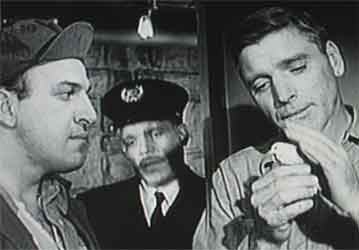 Smoking. They’re always doing it in the old flicks, lending mysterious atmosphere and romantic ambience to plot twists. Oblivious to the damage it would eventually wreak on lungs and environment, the stars of the golden age puffed away. Bette Davis, one of cinema’s most famous onscreen smokers, had to hide her character’s nicotine habit in 1942’s Now Voyager. But by movie’s end, Charlotte Vale (BD) has come a long way, baby, and that includes public smoking. Her lover (played by Paul Henreid) famously lights two cigarettes at the same time, one for himself, one for the lovely Charlotte.
Smoking. They’re always doing it in the old flicks, lending mysterious atmosphere and romantic ambience to plot twists. Oblivious to the damage it would eventually wreak on lungs and environment, the stars of the golden age puffed away. Bette Davis, one of cinema’s most famous onscreen smokers, had to hide her character’s nicotine habit in 1942’s Now Voyager. But by movie’s end, Charlotte Vale (BD) has come a long way, baby, and that includes public smoking. Her lover (played by Paul Henreid) famously lights two cigarettes at the same time, one for himself, one for the lovely Charlotte.But if they were polluting the air with tobacco smoke in the old days, at least they get points for how they lit their cigarettes: wooden matches and shiny lighters. Witness Kirk Douglas’s wiseacre newsman in Ace in the Hole (1951) as he holds his unlit match to a typewriter carriage then flips the return: zing and the carriage ignites his match. His fag is lit and everyone knows what a smartass the new reporter is.
 The cigarette lighters of yesteryear were souvenirs, collectibles, keepsakes. They had sentimental and/or monetary value. They were sometimes beautifully designed and often inscribed. James Stewart unwittingly “steals” one from the wedding loot in the wealthy household of Tracy Lord (Katherine Hepburn) in The Philadelphia Story (1940). The refillable lighter was a valued piece of property not to be discarded, unless of course, it was the only clue to identify one as a murderer, as in Hitchcock’s Strangers on a Train.
The cigarette lighters of yesteryear were souvenirs, collectibles, keepsakes. They had sentimental and/or monetary value. They were sometimes beautifully designed and often inscribed. James Stewart unwittingly “steals” one from the wedding loot in the wealthy household of Tracy Lord (Katherine Hepburn) in The Philadelphia Story (1940). The refillable lighter was a valued piece of property not to be discarded, unless of course, it was the only clue to identify one as a murderer, as in Hitchcock’s Strangers on a Train.
But rue the day lighters became disposable. Plastic lighters are part of the detritus that is turning our oceans into what Capt. Charles Moore has called “plastic soup”. Plastic is not biodegradable. And under 5% of all plastics get recycled. Under 5%! The rest ends up polluting the environment, most noticeably our oceans. Albatross chicks are dying at an alarming rate and dissections have shown bird stomachs full of bottle caps and other plastic items such as lighters. The Birdman of Alcatraz (1962) would have cried over the fate of these beautiful winged creatures.
 Plastic got a boost after the end of WW2 when Life magazine rejoiced with a cover story titled: Throwaway Living. But for a while glass remained the container of choice: milk still arrived at your door in glass containers. In 1955’s Rebel Without a Cause, James Dean stands exhausted by the refrigerator running a cold milk bottle over his forehead. And in Mr. Lucky, Cary Grant delivers big bottles of water for the office water cooler. No nasty plastic water bottles in sight, of course. Mildred Pierce (1945) has only real dishes in her restaurants including the porcelain coffee cups. And in countless domestic scenes groceries are brought home in paper bags, not indestructible plastic bags.
Plastic got a boost after the end of WW2 when Life magazine rejoiced with a cover story titled: Throwaway Living. But for a while glass remained the container of choice: milk still arrived at your door in glass containers. In 1955’s Rebel Without a Cause, James Dean stands exhausted by the refrigerator running a cold milk bottle over his forehead. And in Mr. Lucky, Cary Grant delivers big bottles of water for the office water cooler. No nasty plastic water bottles in sight, of course. Mildred Pierce (1945) has only real dishes in her restaurants including the porcelain coffee cups. And in countless domestic scenes groceries are brought home in paper bags, not indestructible plastic bags.We had no idea what the full impact of Mr. Robinson’s one word of advice to Benjamin Braddock would be when in 1967’s The Graduate he uttered: “Plastics.” Objects made of plastic so thoughtlessly discarded are ruining our world. There are alternatives that we must embrace and soon. Remember that hot phone call between Donna Reed and James Stewart in It’s a Wonderful Life (1946)? So sizzling was it that you might have forgotten Sam Wainwright on the other end of the line extolling the future of “making plastics out of soybeans”. Sam was onto something. Hee Haw!

Planet in Focus International Environmental Film & Video Festival opens this week in Toronto. Oct. 21-25, 2009.
"Planet in Focus produces Canada’s largest and longest running environmental film & video festival. Its mandate is to produce an annual event that screens and promotes outstanding and compelling films and videos covering a broad range of environmental themes and issues by Canadian and International filmmakers. Our mission is to promote the use of environmental film and video as a catalyst for public awareness, discussion, and appropriate action on the environmental, ecological and social health of the planet."
www.planetinfocus.org
